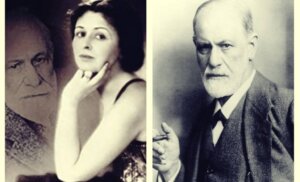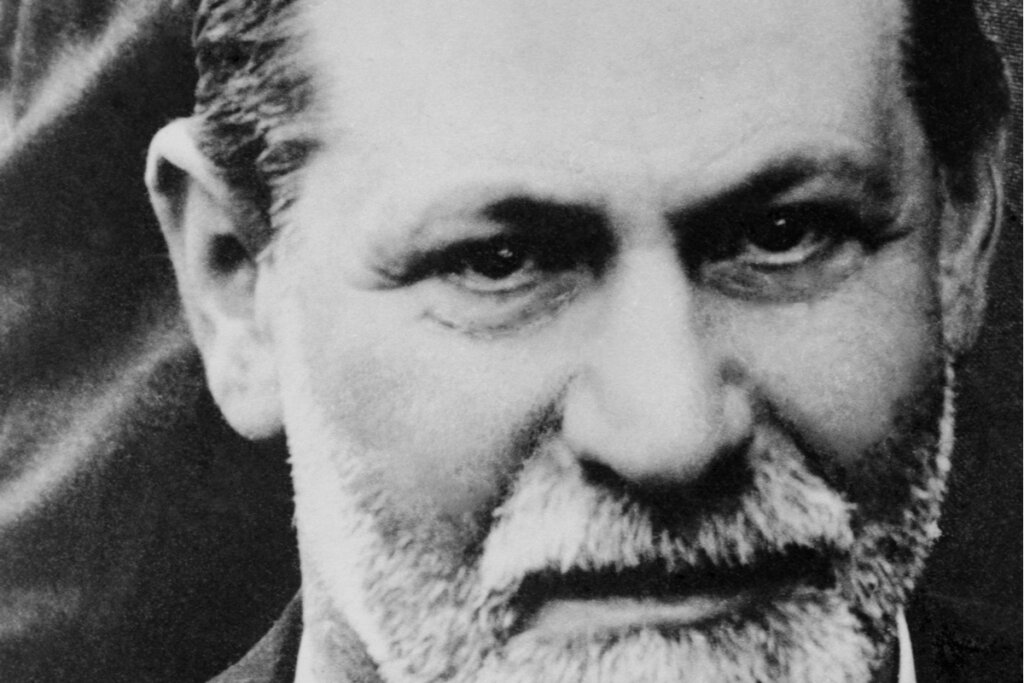Sophie Freud: The Granddaughter Who Challenged Her Grandfather


Written and verified by the psychologist Valeria Sabater
Those who attended Sophie Freud’s classes at Simmons College (now Simmons University) in Boston were surprised. That’s because the former professor of psychosociology was known, above all, for laying the foundations of feminism in the field of social work. In fact, if there was one thing she did frequently, it was to criticize many of her famous grandfather’s theories.
Indeed, Sophie Freud was the daughter of the lawyer, Jean Martin Freud, and speech therapist, Ernestine Drucker. Her father was the eldest son of Sigmund Freud and later, director of the Internationaler Psychoanalytischer Verlag. As a young girl, Sophie was forced to flee from the shadow of Nazism that devastated Europe, to rebuild her life in the United States. It was here that, in her own words, she grew up in “an upper-class Jewish ghetto”.
The shadow of Freud and the almost implicit obligation to pick up his legacy haunted her for part of her youth. However, Sophie Freud was the black sheep of the family. Not only was she not trained in psychoanalysis, but she didn’t even believe in it and never went to therapy.
Her character, her relationship with her grandfather, and her critical view of this classic school of psychology made Sophie an exceptional figure. She passed away in June 2022 at the age of 97.
When I was a child in Vienna, I obediently visited my grandfather every Sunday. He didn’t put me on his knee, he didn’t talk to me, he didn’t give me candy. He was just there, silent.

Sophie Freud
Sophie Freud was a professor at Simmons College, a university in Boston. She also taught social work in Canada and several European countries and was a book review editor for the American Journal of Psychotherapy. As you can well imagine, there were many students who sought to attend her psychosociology classes because of who she was.
However, she always made it extremely clear: “I am a Freud, but I am not a Freudian”. Indeed, from really early on, she refused to follow in the footsteps of her famous grandfather. Perhaps it was because of the tumultuous relationship between her parents and the many disagreements within the family.
Grandparents, uncles, and other relatives made up an environment that was too noisy, problematic, and marked by notable differences. As she once explained in an interview with The Boston Globe, “I’m very skeptical about much of psychoanalysis. I think it’s such a narcissistic indulgence that I cannot believe in it”. She further claimed that her father was a false prophet of the 20th century.
Sophie Freud’s relationship with her grandfather
Sophie Freud remembered visiting her grandfather every Sunday, as a child. She described him as a man with little warmth, a regal and distant figure who didn’t talk a great deal. He wasn’t close to her and wasn’t particularly affectionate. He was also in chronic pain due to mouth cancer caused by his addiction to tobacco.
In fact, the last years of the father of psychoanalysis were especially hard. The malpractice in his treatment extended his suffering to an almost inhuman limit. Moreover, as studies have revealed, it’s likely that his death was the result of euthanasia.
His granddaughter admits that his loss affected her but, due to her determined and independent character, she soon overcame that void. In the end, she and her mother managed to distance themselves from the Freud clan and establish a fairly comfortable life in the United States.
Sigmund told his son that the woman he had fallen in love with, Esti Druker, was too beautiful and glamorous for the extended family.
Sophie Freud, a feminist among the Freuds
Part of Sophie Freud’s work at the university involved research. It was in 1970 that she began to review her grandfather’s work regarding women and narcissism. After many interviews, she proved Sigmund Freud wrong in his claim that only men demonstrate ‘true passion’.
She claimed that women are also competitive and decisive, and they work on their goals in the same way as males do. Passion in women was one of her favorite topics. She also promoted women’s rights in universities and fought against another common reality of the time.
In fact, Sophie Freud laid the social foundations to make young women see that the fact of becoming pregnant and being mothers didn’t put an end to their education. Nor did it mean they had to give up their jobs and professional aspirations.

The black sheep of the family
Sophie Freud was rejected by her family at an early age. Her aunt, Anna Freud, a psychoanalyst and faithful heir to her own father’s theories, viewed her rebellious niece’s drift away from the Freud family in a negative light. However, Sophie really didn’t mind too much being the black sheep of the family.
Sophie considered that the fundamental theories of psychoanalysis, such as ‘penis envy’ or the concept of transference, were outdated. She was also extremely critical of the patriarchal vision of female sexuality that her grandfather defended. The figure of women in the theoretical fabric of psychoanalysis was, in her opinion, demeaning.
“Women” Sigmund Freud claimed, “oppose change, receive passively, and add nothing of their own”. He stated that women are envious of the ‘anatomically superior‘ male penis which leads to penis envy. He added that the only way they can resolve this is by having a child of their own, even suggesting that they tend to desire a male child in their efforts to gain a penis. These Freudian precepts were always rejected by Sophie Freud.
Without a doubt, the legacy of this feminist activist and psychosociologist paints a suggestive canvas regarding the history of psychoanalysis. For those who want to know more about her and her family, she wrote a book, Living in the Shadow of the Freud Family. It’s a work that’s both revealing and full of tantalizing details.
All cited sources were thoroughly reviewed by our team to ensure their quality, reliability, currency, and validity. The bibliography of this article was considered reliable and of academic or scientific accuracy.
- Adeyemo WL. Sigmund Freud: smoking habit, oral cancer and euthanasia. Niger J Med. 2004 Apr-Jun;13(2):189-95. PMID: 15293843.
- Freud, Sophie (2000) Living in the Shadow of the Freud Family. Praeger Publishers.
This text is provided for informational purposes only and does not replace consultation with a professional. If in doubt, consult your specialist.








